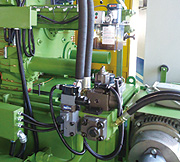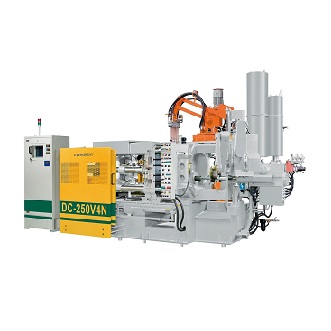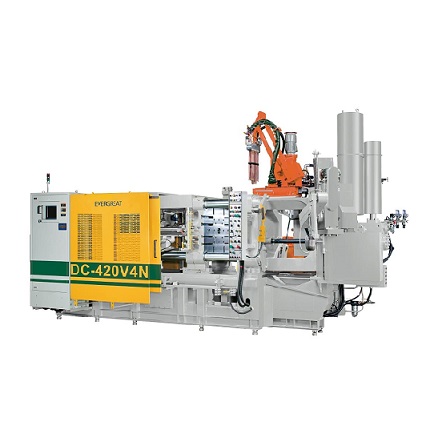2021-12-17
Types of Die Casting Machine

Types of Die Casting Machine
The die casting process uses the pressure for injecting molten metal into a die or mold to produce casting products with the exact geometries or shapes as the mold’s internal shape.
What are Die Casting Machines?
Die casting machines are used for the process of metal casting where the molten metal gets injected to the mold cavity. It forms the die casting parts once the metal cools down and solidifies. This manufacturing method is used to produce metal castings such as zinc or aluminum die castings.
There are two primary types of die casting machines, and these are the following:
Cold Chamber Die Casting Machine
Molten metal from the separate holding furnace in cold chamber die casting machine is ladled to the cod chamber sleeve after closing the mold. It forces the metal into the die and the mold is opened after solidification to inject the casting part.
Melting of the metal is done outside the machine before it gets added to the compression chamber. Depending on the compression piston’s moving direction, this can be divided into the horizontal and vertical cold chamber machines.
The molten metal will be removed from the vertical cold chamber die casting machine’s furnace then poured to the compression chamber. The compression piston injects the metal into the metal and another piston pushes the surplus metal.
The horizontal cold chamber machines work in a similar method as the vertical ones and the only difference is the piston’s movement in horizontal direction. Many of the modern die casting machines now are horizontal. The cold chamber machines have the ability of die-casting metal using high melting point like copper alloy.
Cold chamber die casting machines offer the following benefits:
- Can be used to produce large parts
- Lower risks of corrosion
- Ideal for casting copper and aluminum and their alloys
Hot Chamber Die Casting Machine
A hot chamber die casting machine feature a pressure chamber that is attached to the mold cavity, allowing the molten metal to have a continuous flow through the pressurized compartment. When the cylinder of the chamber reverts to the unpressurized position, the molten metal gets fed to the die casting die.
The melting metal’s crucible is connected to the machine with the piston mechanism for the metal’s hydraulic injection to the metal is installed inside the crucible. There are hot chamber machines that use compressed air for pressing the metal directly to mold, eliminating the need for the piston machine.
The injection mechanism will be submerged in molten metal, so it is important to prevent chemical erode or attack to the submerged injection system. These hot chamber machines are primarily used to cast tin, zinc, and other types of alloys with low melting point.
The following are the different benefits that hot chamber die casting machines have to offer:
- Close dimensional tolerance
- Can produce intricate castings
- Improved surface finish
- High productivity
- Ideal for production of zinc die casting parts
The specific type of die casting machine you will use depends on the specific metals you wish to use.



